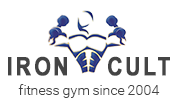Circadian Rhythm
I should say I am sorry, for my previous write up on circadian rhythm was shoddy. I stumble upon this while I was checking my previous entries. There are several write ups, which I feel I could write better. However, this beckoned my immediate attention, for I could say more.
Click here to read my previous blog entry
The circadian rhythm is often referred to as the “body clock.” The circadian rhythm is a 24-hour cycle that tells our bodies when to sleep and regulates many other physiological processes. This internal body clock is affected by environmental cues, like sunlight and temperature. For example, if you stay awake for a long period of time the circadian rhythm/biological clock tells us that a need for sleep is accumulating and that it is time to sleep.
On the flipside, similar to the circadian rhythm the biomechanics of the lower back may also not be conducive for early morning vigorous physical activity. I quote Stuart McGill, a professor of spine biomechanics and renowned back health expert. He says, “As you know, you’re taller when you wake up in the morning than when you go to bed at night. This is because the discs are hydrophilic, that means they suck up water while you sleep and when there are no stresses present. After rising, hydrostatic stresses of just walking around and using the muscles during the day compresses your spine and the fluid is squeezed out, decreasing the annular tensions in the disc. So, when you wake up the extra height in the discs are analogous to a full water balloon ready to burst and if you bend, you build up much higher stresses in the disc.”
Ouch! Don’t get alarmed. Now, do you know why you feel stiff early in the morning? It’s because of the increased hydration of the discs. However, all you need to do is perform some lighter movements; thereby, reducing the water content in the disc, which apparently occurs with or without your voluntary intervention. You are all set to go thereafter.
On a similar note, it is understood and well known that a night sleeps is good for the rejuvenation of the body. You now by know the importance of sleep. However, Frank Forencich in his must read book titled Change your body Change the World: Reflections on Health and Human Predicament further explores into the mechanics of sleep. He states that tissue repair peaks between midnight and 4 am. Likewise, heart efficiency, muscle strength and flexibility are all highest between 4 and 8 pm. I firmly endorse his views when he says that strength and flexibility peaks in the evening. I have personally experienced this while working out at the gym. I vividly remember that my personal best lifts were always in the evening; also that I enjoyed a greater degree of suppleness in the evenings. He further adds that logical reasoning and alertness are at their lowest between 4 and 6 am. Yes, it is indeed true. For example, at 5 30 am in the early morning when I take my dog for a walk I have many times felt sluggish both mentally and physically.
Also, don’t assume that you can sleep well after a bout of vigorous physical activity. For example, say you are working in a call center, and you have a work shift where you logout at 5 a.m. It’s not advised to execute a workout at around 5 or 6 a.m. and then go to bed. Likewise, say you have an early morning shift. You shouldn’t workout late at night, as you find free time. You can’t sleep immediately after physical exertion. After you finish a workout, the body takes a longtime to calm down. Endorphins and other chemicals are released during vigorous physical activity to make you more alert and energetic. Your body is also slow to fully cool down and calm down after exercise. Until your body cools down, you will be fighting an uphill battle trying to relax and sleep. In fact, exercise can cause your core temperature to be increased for four or five hours after working out, which also acts contrarily to induce sleep.
Lastly, although science, as stated above, confirms on the contrary, and though my personal best lifts were in the evening, I enjoy the morning workouts more. The endorphin rush/release (associated with vigorous physical activity) I get in the morning is unmatched. I am not suggesting that you will not feel better because of endorphin hormone if you perform physical activity in the evening. Somehow, the pleasant feeling in the early morning counts more. I believe, what also unfolds is not whether you are adhering to scientific laws, but the sense of wellbeing, which you feel. Todd, my mentor, rightly says, “Fitness and well-being is more than physical.” I would, however, add it is more than physical and beyond science.
What is the take home message? Learn to respect your body; thereby, heeding to the body clock. However, what matters more is the mental well-being than the physical aspect. So, physical training is not only performed for aesthetic purposes but also for mental peace.
PS: Message for my gym clients—don’t fret! You are asked in the gym to execute various warm up drills pre-workout. This in turn reduces the hydration of the vertebral discs. So, you are not at risk if you are performing workouts in the early morning, henceforth.
